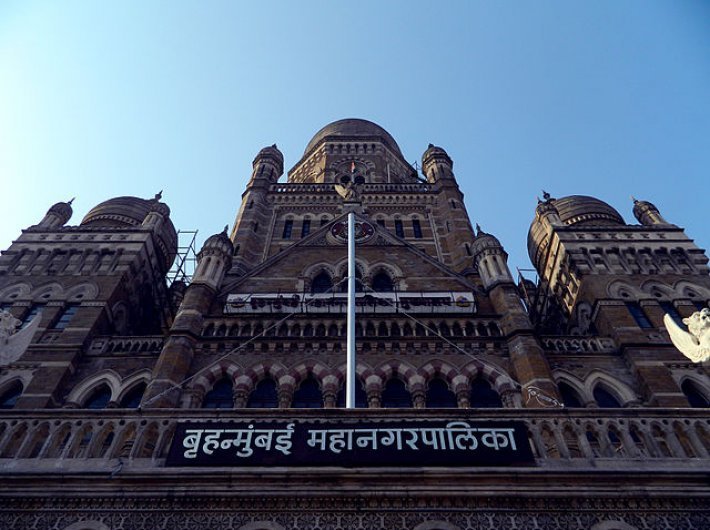Outlines standard protocol, orders immediate dismissal of road engineers from other additional work
With the menace of potholes resurfacing on city roads, Mumbai’s no-nonsense municipal commissioner Iqbal Singh Chahal has given strict instructions to fix them on a priority basis within two-three weeks.
In an online review meeting held on Tuesday, he took stock of potholes on roads after rains in the metropolis and measures being taken for rain-borne diseases.
Issuing instructions Chahal said, “Without further ado, it is the duty of the administration to properly protect the roads by filling the potholes and the process of filling the pits should be started on a war footing jointly by all administrative departments as well as the road department.”
He ordered that the pit should be filled on the same day and possibly all pits should be filled within the next two to three weeks on priority.
Outlining the procedure to be taken, the MC said:
(1) For proper maintenance of total 772 km of roads in Mumbai (about 147 km of project roads and about 625 km of roads) the concerned contractor/ central body will be responsible for the road during the fault liability period. There will be no potholes on these roads.
(2) This apart, the assistant commissioners of all the administrative departments should take action on the war footing to fill the potholes on the roads of about 1,087 km length.
(3) Road engineers of all the administrative departments will have to personally visit each of the roads in their respective areas and submit to the concerned assistant commissioners within a day the information about the number of potholes and the amount of material required to fill them.
(4) The assistant commissioner will then immediately report the required cold mix to the roads department, cold mix and all other necessary equipments should be supplied to all the administrative departments immediately after receiving the demand within two days.
(5) As soon as potholes are noticed on the roads, the process of filling them should be completed within a day.
(6) All assistant commissioners will have to go to their respective administrative divisions every morning to ensure that the filling of the pits is done properly.
(7) The joint commissioners/deputy commissioners of all the circles should also continuously review the process of filling the pits and guide the concerned assistant commissioners, road engineers where necessary. Issues should be resolved.
(8) If there is no solution to a problem additional municipal commissioner (project) or chief engineer (roads) should be contacted directly.
(9) In the departmental offices where other works/ responsibilities have been assigned to the engineers of the road department, they should be immediately relieved of their duties and given only the responsibility of road maintenance for the next one month.
(10) Priority should also be given to filling potholes on roads pointed out by the traffic police as well as on congested roads so as not to create traffic problems.
(11) Pits should be filled at night if possible so that traffic is not disrupted.
(12) A daily report of all proceedings should be submitted by the chief engineer(roads). Complaints received on social media should also be acted upon and appropriate responses should be given.
“Significant and effective change should actually be found in the next two to three weeks by strictly following these detailed instructions on a daily basis. I will personally monitor all these activities every day,” Chahal said.
The BMC claims to have fixed more than 40,000 potholes on all roads in the metropolis since April 2021 and says that continuous rains over the last few days and increased traffic on the roads have led to a resurgence of potholes. With around 3,000 mm rainfall in Mumbai this year and continuous rains since the last few days road traffic has also increased since the lockout was relaxed.
Additional municipal commissioner (eastern suburbs) Ashwini Bhide, additional municipal commissioner (projects) P Velarasu, all concerned joint commissioners, deputy commissioners, assistant commissioners and officers were present at the meeting
In his review of the current situation of monsoon diseases and the measures being taken, the MC said that with tireless efforts over the last one and a half years, the health system has now brought Covid-19 under complete control. However, to some extent rain-related illnesses have been found to be on the rise. There is a need to be especially careful about dengue. Mosquito control and mosquito eradication measures should be expedited in all places where mosquitoes are likely to be produced. He said that action should be taken in administrative departments or areas where more patients are found.
Chahal said that mosquito eradication should be jointly undertaken by the pest control officer, solid waste management officer and conservation officer of the administrative department. He said that experienced corporators, people's representatives, organizations in their respective areas should also be consulted for help. The assistant health officer (health) should submit daily patient statistics to the assistant commissioner. The assistant commissioner should also focus on health measures in the areas where the number of patients is high.

